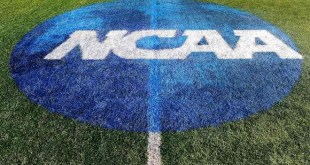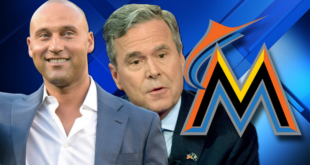Back in January, we made some predictions on what the top sports law stories would be in 2015. As we approach the end of the year, here’s a look at how our predictions turned out and what we missed in a year of exciting sports law developments.
Concussions and Player Safety
Noting the growing pressure surrounding the NFL on concussion issues, we said that concussions and player safety would be a story to watch in 2015. With serious concerns about the handling of Case Keenum’s concussion in November and the release of “Concussion,” the film about the NFL’s suppression of brain damage research, head trauma in professional sports (especially in the NFL) continues to be a story to watch. Throughout the year, the battle over the NFL’s concussion settlement continued with the settlement initially rejected, then accepted, then appealed. The NHL is also dealing with a concussion lawsuit, and we haven’t seen the last of the NFL’s concussion issues, so expect this to still be in the headlines in 2016.
Ownership Disputes
We predicted that ownership disputes would be prevalent this year and we were right. From the beginning, leaks about owners’ feelings on the Patriots dominated Deflategate headlines. More recently NFL owners are considering a three-way battle to move an NFL franchise to Los Angeles. Perhaps the most public and significant ownership battle was Tom Benson’s fight to retain control of the two pro sports franchises he owns – the New Orleans Saints and Pelicans. Benson altered his succession plans, disinheriting family members and putting future control of his teams in the hands of his wife. Eventually, a judge ruled that Benson was mentally competent at the time he changed his succession plan, but the fight over non-voting shares of his teams still continues.
The NCAA’s Ups and Downs
We anticipated that NCAA lawsuits and scandals would dominate the headlines and that held true all year. Although the NCAA was under siege from all sides to start 2015, the organization managed some significant victories this year. The NLRB declined to exercise jurisdiction over Northwestern athletes’ attempt to unionize, indefinitely postponing unionization attempts for college athletes. The Ninth Circuit partially affirmed and partially vacated the O’Bannon decision in what was a tremendous victory for the NCAA. The decision also closed the door on certain NCAA reform models. Barring a Supreme Court grant of certiorari, the recent denial of rehearing ends one of the highest profile sports law cases of the last few years.
That’s not to say all the scandals and lawsuits disappeared by any means. Though the NCAA moved on from the Sandusky scandal, reaching a settlement with Penn State that largely reversed much of its initial sanctions, a host of other issues arose. The Jameis Winston sexual assault scandal played out mostly in the media and outside the courtroom, although a Title IX suit was eventually filed by his accuser. The UNC academic fraud scandal that rocked the NCAA continued to metastasize, even though the NCAA has an ill-defined role in academic fraud cases.
Meanwhile, Jeffrey Kessler’s antitrust lawsuit is still hanging over the NCAA’s head. Don’t expect NCAA sports law news to quiet down in 2016, even if some of the more significant cases have wrapped up.
The FIFA Scandal
While we were under no delusions concerning the corrupt nature of FIFA, we couldn’t have foreseen the Department of Justice’s enormous and now public investigation into the soccer governing body. 2015 was the year FIFA earned its title as most corrupt sports organization in the world. After FIFA officials were arrested and indicted on corruption charges, the scandal kept spreading and continues to affect the soccer world. Much of the investigation has focused on South and Central America, but the scandal has brought down the most powerful officials in the organization. Newly re-elected FIFA President Sepp Blatter decided to resign. Chuck Blazer was banned for life. Blatter and UEFA head Michael Platini each received eight year bans. And CONCACAF is now governed by committee after its past three presidents were indicted.
Sports Gambling and the Legal Quagmire of Fantasy Sports
We predicted that the sports gambling legalization cause would see some movement in 2015, but the cause was dealt a setback when the Third Circuit dealt New Jersey a loss in its sports betting case. We can be sure this discussion will continue into 2016 as the court rehears the case.
In the fall of 2015, fantasy sports, which had ensconced themselves within a dubious legal loophole, became embroiled in scandal and scrutiny. Before securing sound legal footing, DraftKings and FanDuel said goodbye to any remaining obscurity with an ad blitz to start the NCAA and NFL football seasons. The result has been an astounding failure, with nearly every state scrutinizing the legal situation of daily fantasy sports. Although Massachusetts has taken a favorable approach, Nevada and New York have gone the other way. State scrutiny and regulation of the DFS industry, as well as the corresponding lawsuits to follow will no doubt continue to draw headlines the sports law world in 2016.
Stadium Financing
We looked at stadium financing in a two-part series earlier in the year and public subsidies for sports stadiums continue to be a hot-button issue in sports law and business. Glendale fought with the Coyotes over a new lease agreement; the Georgia Supreme Court settled a lawsuit over the new stadium for the Atlanta Braves; Milwaukee approved a new arena financing plan; and St. Louis did the same for a new football stadium in December. This was not the year that public opinion reached a tipping point on sports subsidies, but as long as professional sports teams insist on public funding for stadiums, lawsuits and controversies will continue to arise.
Domestic Violence
After the Ray Rice and Adrian Peterson cases, we thought domestic violence would be a hot topic in 2015 and it definitely was. The tide of public opinion seems to have permanently shifted in terms of how sports leagues discipline athletes for domestic violence incidents. MLB released a new domestic violence policy, which was soon put to use with incidents involving Jose Reyes and Yasiel Puig. Despite the NFL’s new personal conduct policy, Greg Hardy’s suspension was reduced. While we can hope that athletes will stop committing acts of domestic violence, it’s unlikely that this issue is going away any time soon.
Busy Year for MLB
Major League Baseball had a busy year of legal disputes. From the fight at the Friendly Confines, to the MASN dispute between the Orioles and Nationals, baseball was beset by a host of legal issues. Kris Bryant and Maikel Franco have filed service time grievances; the league implemented a new netting policy after concerns over fan safety; the qualifying offer emerged as a roster-building tool; and the FBI investigated the St. Louis Cardinals for hacking into the Houston Astros’s player information network. However, MLB did notch a few big victories in court, surviving San Jose’s antitrust suit and the minor league wage lawsuit.
Football is Still King
Despite all of these major stories, the NFL still dominated the sports law headlines in 2015. Former player Darren Sharper faced sexual assault and rape charges around the country, eventually reaching a controversial four-state global plea deal. Fan violence continues to be a problem in stadiums. The Redskins had their trademark registration cancelled and have appealed the decision to the Fourth Circuit. The Aaron Hernandez trial dominated headlines for weeks before he was found guilty of first-degree murder.
Meanwhile, the NFL’s discipline losing streak continued as Judge Doty ruled in favor of the NFLPA’s motion to vacate arbitrator Harold Henderson’s suspension of Adrian Peterson, and the Missouri Supreme Court ruled that Roger Goodell could not act as an arbitrator in disputes with NFL employees.
We couldn’t have predicted the Deflategate scandal that embroiled the league, the Patriots, and Tom Brady after the AFC Championship Game, but once it made headlines we predicted it would be here to stay and the scandal dominated headlines from January through December. Goodell suffered his fifth significant loss in as many cases when Judge Berman exonerated Tom Brady in September. With oral arguments in the appeal not taking place until March, expect this case to extend well into 2016.
Other Issues
In international news, the IAAF faced scrutiny after reports of extensive doping worldwide. Oscar Pistorius was found guilty of murder after the state appealed his conviction, which sounds strange to American legal ears. Minimum wage cheerleader lawsuits were more prevalent than ever this year. Thabo Sefolosha’s trial became a flashpoint in which the national discussion over police brutality intersected the sports world. Even horseracing had its issues, including Pimlico’s poor handling of the Preakness during violent thunderstorms. Although the NHL and NBA faced a number of legal issues throughout the year (e.g. the Patrick Kane case), they managed to avoid the spotlight of the sports law world, thanks in large part to FIFA, NFL, and NCAA scandals and huge court cases like O’Bannon, the New Jersey sports betting case, and Deflategate.
And these are just the highlights. For the full rundown of the year’s sports law stories, check out our Sports Law Links archive. As we move on from 2015, we want to thank everyone for reading and sharing our articles this year – we hope you’ve enjoyed our coverage of the many legal issues in sports. The sports law world never sleeps, and 2016 is sure to be full of just as many lawsuits and scandals, so be sure to follow our coverage into the new year.
 The Sports Esquires Putting Sports on Trial
The Sports Esquires Putting Sports on Trial




2 comments
Pingback: Sports Law Links - The Sports Esquires
Pingback: The Online Sports Law DIY CLE Program - The Sports Esquires